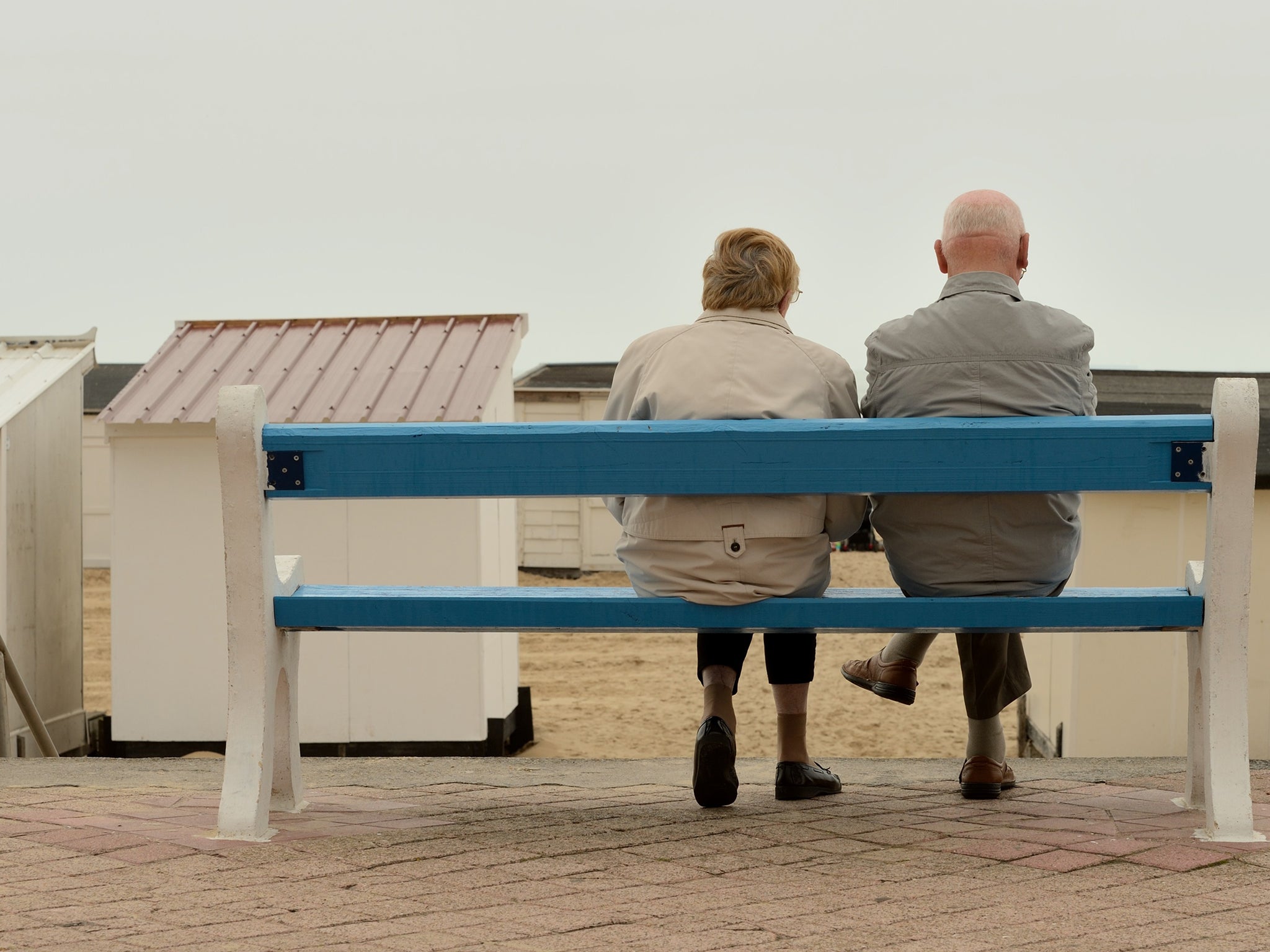Life expectancy in the UK: Wealthy men living longer than the average woman for the first time
No social group of men has ever outlived female averages before

Your support helps us to tell the story
From reproductive rights to climate change to Big Tech, The Independent is on the ground when the story is developing. Whether it's investigating the financials of Elon Musk's pro-Trump PAC or producing our latest documentary, 'The A Word', which shines a light on the American women fighting for reproductive rights, we know how important it is to parse out the facts from the messaging.
At such a critical moment in US history, we need reporters on the ground. Your donation allows us to keep sending journalists to speak to both sides of the story.
The Independent is trusted by Americans across the entire political spectrum. And unlike many other quality news outlets, we choose not to lock Americans out of our reporting and analysis with paywalls. We believe quality journalism should be available to everyone, paid for by those who can afford it.
Your support makes all the difference.Wealthy educated men now live longer than the average woman for the first time, official figures show. No social group of men has ever outlived female averages before.
The change comes as men continue to close the life expectancy gender gap. Since the 1970s men have been catching up with women and surviving longer, partly thanks to a move away from heavy physical jobs and falls in male smoking rates.
Now men in the top professions are outliving the average woman in England and Wales, research by the Office for National Statistics shows. Men in higher managerial and professional jobs can expect to live for 82.5 years; marginally longer than an average woman at 82.4 years, an analysis of socioeconomic groups between 2007 and 2011 has found.
ONS Statistician Chris White said: “There are a number of factors behind the closing gap in life expectancy between genders. In particular, the declining numbers of men working in heavy industry jobs (such as mining) and manufacturing towards jobs in the service sector, along with a substantial reduction in the proportion of men smoking since the 1980s.”
Despite improvements for wealthier men, women from the most privileged socioeconomic group – which takes into account their occupation, education and salary – still have the longest life expectancy at 85.2 years.
Wealth and education are still driving a huge gap in how long people live. Despite significant growth in male and female life expectancy across all classes over the last three decades, the life expectancies of the poorest cohort in 2007 to 2011 were only similar to the ones enjoyed by the richest cohort in 1982 to 1986.
Majid Ezzati, a public health professor at Imperial College London who published his own research on life expectancy in April, said: “Being poor impacts on your access to healthier foods and lifestyles and the stress that leads to unhealthier lifestyles. Very few wealthier, more educated men smoke, they probably have better diets because they can afford healthier food and health education messages reach them more because they have the time and incentives to follow them. Social stresses can affect life expectancy too - things like job security, income security and high quality housing - these things can have a big impact.”
The gulf between rich and poor continues to widen. The average gap between the most and least privileged men has grown from 5.6 years to 6.7 years over the last 30 years. For women it has increased from 3.8 to 5.3 years over the same period.
Professor Ezzati’s research showed that social inequality across the country meant that men in Blackpool, which has the lowest life expectancy in England and Wales, lived to an average of just 75.2 years in 2012, while those in the City of London, with the highest, live an average of 83.4 years.
Future changes to the NHS could exacerbate the gulf between rich and poor when it comes to life expectancy, the professor warns. “A really good health system helps to dampen inequality and the NHS has previously played that role,” he said. “But the weaker our health system becomes as a result of, for example, staffing reductions, the worse health inequalities will become.”
Join our commenting forum
Join thought-provoking conversations, follow other Independent readers and see their replies
Comments